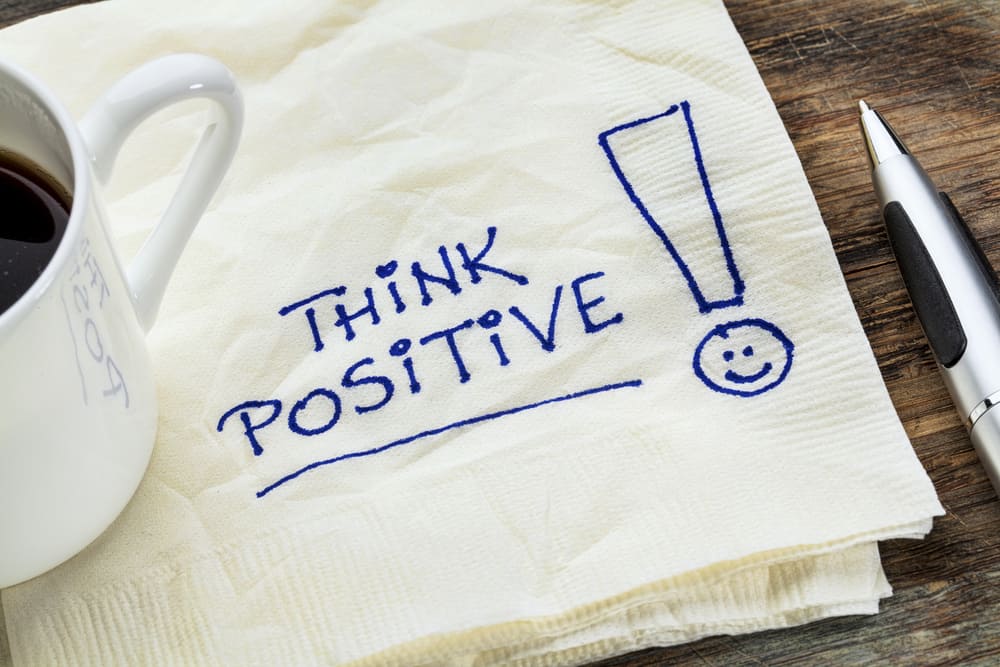How the Positivity Only Movement Has a Negative Impact on the Disability Community
In September of 2012 I was young, hopelessly optimistic, and terrified of the implications two newly diagnosed autoimmune diseases would have on my existence. Having already been diagnosed with bipolar disorder at 18, I knew that this would be a life-long experience. But I did not know how heavy it would be. The weight of it all settled in my chest and threw me into an unmanageable depression.
I hadn’t even grasped what I was going through before I was tossing out any negative (and, for that matter, natural) thoughts I was having. It was at this point that I stumbled into a movement known by names such as the Positivity Only Movement and the Recovery Movement. The narrative of this movement is “Reject negative emotions and embrace the positive.” As a scared kid, this seemed like a beautiful idea. It was cleansing to absolve myself of doubt and fear. It was refreshing to only let my brain soak in the glory of hope. Reminding myself that my recovery may just be around the corner held me together for a long while.
However, I was not allowing myself to grow in thought and advocacy.
In trying to remain positive, I was missing glaring truths. Not only was I sick, but I was also living in extreme poverty. It took me a while to realize people living like me were harshly underrepresented in Positivity Only and Recovery Movement media. Most of the popular bloggers in this niche were insured and had living situations that helped them thrive. That was something I could only dream of. In the haze of chemo and sleeping medications, all I ever wanted was for the rest of my life be stable. My intersectional identity was harshly ignored by the movement, and participating in “positivity” slowly drained me.
A line in the “Positivity Manifesto” of a positivity group I once moderated reflects this line of thinking: “You are not a victim of your circumstances.” But what if you are, and have been?
Positivity- and recovery-based movements contribute to the notion that you’re continuously in control of your body, your recovery, and what happens to you. It assumes that you can simply remove yourself from situational stresses, and you’re to blame if you can’t. But recovery isn’t just based on an individual’s actions. Situational, environmental, and class-driven factors all play a role. These movements often ignore poverty, race, illness, disability, and class, and instead are usually targeted at supporting cisgender, white, thin, and middle/upper-class people.
And they ignore the fact that we can’t separate ourselves from the intersection of our identities or how they impact our lives.
By ignoring realities of disabled people, ignoring that race affects the quality of healthcare, and ignoring that poverty (which 22,508,075 disabled people experienced in 2014 alone) impacts quality of life, we are committing a grave disservice to our community as a whole. Nothing is beyond repair, however. If we all work to accept the truths and realities of intersectional identities, we will be better able to build a sustainable model of support within and across movements.
Ignoring the realities of living with physical or mental health disabilities doesn’t make them go away, but rather prevents people from being able to assess and deal with them. Instead, I am allowing myself space to be bitter. I am accepting that my situation is unfair, and that it is a struggle. This allows me to accept that I don’t deserve what I’m experiencing, but it has happened anyway.My “negativity” allows me to be realistic in my expectations and goals, and that lets me live a more sustainable lifestyle. With that knowledge, I am able to move on and start dealing with it.
About Rooted In Rights
Rooted in Rights exists to amplify the perspectives of the disability community. Blog posts and storyteller videos that we publish and content we re-share on social media do not necessarily reflect the opinions or values of Rooted in Rights nor indicate an endorsement of a program or service by Rooted in Rights. We respect and aim to reflect the diversity of opinions and experiences of the disability community. Rooted in Rights seeks to highlight discussions, not direct them. Learn more about Rooted In Rights




The film series, Unnatural Causes: California Newsreel, examines the question, is inequality making us sick and is an excellent resource for exposing the phenomenon of how race affects health.
The Social Determinants of Health; IE poor diet, homelessness, violence, etc. cause people to become physically ill. It often takes up to 7 years for a disease to be discovered. During this “lag time”, misdiagnosis can cause the original disorder to worsen and mis-treatment most certainly causes further health problems.
Autoimmune diseases often present with the symptom called “depression”, and as such, are at high risk of being misdiagnosed as “mental illnesses”. Symptoms are not ‘diseases” in and of themselves, but simply the bodies warning symptom that something is wrong.
The American Medical Association withdrew all funding for the DSM5 owing to a complete lack of scientific credibility, yet it is still fraudulently being used to diagnose and drug people with neurotoxic drugs known for 40 years to cause brain injury, death, disability, and addiction.
Boys of color and vulnerable children who end up in child protective services, were found to be the most likely to be diagnosed as “mentally ill” and subject to a life sentence of ineffective and dangerous psychotropic drugs, which some lawyers consider experimentation and the UN considers to be torture. However, no vulnerable group is immune.
The American Psychiatric Association (Ronald Pies) admitted that the “chemical imbalance” myth (a failed theory) was just a convenient allegory to get people to take their meds and he never met a dr who believed it, yet against the law of informed consent, countless people are labelled for life as “mentally ill” for profit.
Misdiagnosis is rampant, unethical insurance fraud and medical malpractice. Informed consent, cannot be garnered by misinformation or fraud. New studies show that the “symptoms” called “mental illness” are largely caused by chronic stress and poor diet which causes inflammation. Inflammation, vitamin deficiencies, poor diet, lack of sleep, illicit drug use and drinking etc. are not “mental illnesses” but are being misdiagnosed as such.
Governments that spend money addressing the Social Determinants of Health, (housing, education) have much better success than those bent on the ‘medicalization of social problems and stream (force) everyone into the “mental health” system in order to be allowed to access a roof over their head or the basic necessities of life. No one should have to trade their sanity, legal rights and for food stamps.
Dr’s and prescription drugs taken as prescribed are competing for the 3rd leading cause of death, to say nothing of the disability they cause.
Please educate yourself so that the mass misinformation and harm it causes can stop. Start reading at Mad in America.
Diagnostic Errors Are the Most Common Type of Medical Mistake
Missed diagnoses out-ranked medication overdoses and surgical mistakes in causing the most patient harm.
http://healthland.time.com/2013/04/24/diagnostic-errors-are-more-common-and-harmful-for-patients/
If the current “medical model” of “mental illness” was helpful, we would see people recovering and being “cured”. That is not the case because we have a “sick care industry” that uses toxic Allopathic drugs, what we see instead is an epidemic of “mental illness’s”.
http://www.emotional-cpr.org/
Dan Fisher used the term PUBLIC HEALTH as a replacement for the pathologizing term “mental health”.
http://www.theglobeandmail.com/…/canada-mu…/article34056251/
The real challenge to Canada’s health system is not wait times
ANDRÉ PICARD – PUBLIC HEALTH REPORTER The Globe and Mail
KEY POINTS
• Nordic countries, emphasize the socio-economic determinants of health, in tackling inequality, but spending more on education and social welfare, and less on health, with impressive results.
• In Canada, we have a sickness-care system.
• New CIHI study highlight, patients are often left to navigate the complex system on their own, and too often fall between the cracks.
• But the real challenge we have is not waiting times. It is more fundamental:
• To provide the right care at the right place at the right time at an affordable price (to individuals and society). To do so, we need vision and we need a system; not just data, but a willingness to act on the data.